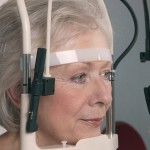When it comes to heart attacks, many of us know the causes most likely to trigger a problem: Obesity, not enough exercise, high blood pressure, stress and smoking. But new research from America is finding other, less common factors can also put your heart at risk.
Asthma that requires daily medication
Asthma severe enough to require daily medication is associated with a 60% higher risk of a heart attack, stroke or death from cardiovascular disease, according to new research. In addition, because chest tightness is often a symptom of asthma, asthmatics could miss the signs of a heart attack, delaying treatment.
Taking certain heartburn drugs
For those with acid reflux, taking proton pump inhibitors (PPIs) was associated with a 16 to 21 % higher heart attack risk, according to a large new Stanford University study that looked at data from nearly 3 million patients.
The study found no link, however, between heart attacks and another well-known type of heartburn drug, H2 blockers, such as Tagamet, Pepcid and Zantac.
PPIs may reduce the production of nitric oxide, an important molecule that helps maintain the health of the inner linings of blood vessels. Too little nitric oxide could accelerate heart disease.
Missing the flu vaccine
A flu vaccine doesn’t just protect you against that nasty virus: it also helps your heart, decreasing your odds of having a heart attack by 50 % in the year following the jab compared with those who had not had their vaccination.
It has been discovered that antibodies that are produced after the vaccination activate molecular processes, which protect and strengthen the cardiovascular system. You’re getting a double benefit: protection against both the flu and a heart attack.
Weak grip strength
Researchers found that grip strength, or the force you exert when you squeeze something as firmly as possible in your hand, is a predictor of heart attack risk.
Grip strength is as strong a predictor of cardiac death as blood pressure, according to researchers in Canada. While the cause of the link is unknown, there could be a connection between muscle strength and improved vascular function.
Daylight Saving Time
Adjusting the clocks forward (or back) an hour does more than just mess up your sleep.
The disturbance to your body clock also appears to have an impact on your heart. Research in America noted a 25% increase in the number of heart attacks on the Monday after the clocks go forward and we lose an hour, compared with other Mondays during the year. By contrast, there is a 21% decrease in the number of heart attacks on the Tuesday after the clocks go back, and we gain an hour.
The sleep disruption is stressful to the body, which can trigger a heart attack in susceptible patients.
The cocktail hour
When it comes to whether alcohol helps or hurts heart health, timing appears to be everything. The chances of having a heart attack increased 72% in the first hour after drinking alcohol. “Within the first hour after drinking, your heart rate and blood pressure increase, and your blood becomes more sticky, making it more likely to clot,” explains American research. However, within 24 hours of imbibing, the overall risk of heart attack decreased by 14%.
Anger issues
If you’re blowing your top at every little thing, those outbursts are sending your heart attack risk skyrocketing.
A 2014 study published in the European Heart Journal found that patients who described their mood as “furious” or “enraged” had almost a five-fold increase in their risk of heart attack in the two hours after an intense bout of anger. “The key message is that even if you can’t prevent anger entirely, lowering how often you get angry or lowering the intensity can be helpful for lowering your heart attack risk.
Traumatic events
It’s not an exaggeration to say that heartbreaking events really may break your heart — especially for women.
Research found that traumatic life events like the death of a loved one or a life-threatening illness increased heart attack risk by nearly 70% among middle-aged and older women.
Doctors and patients should discuss ways to reduce psychological stress following a personal trauma, in order to reduce risk.
Taking common painkillers
Widely used over-the-counter and prescription painkillers ibuprofen and naproxen come with a warning about possible heart attacks and stroke.
Up to now, the warning has said that these non-aspirin, non-steroidal anti-inflammatory drugs (NSAIDs) “may cause” an increased risk of heart problems, but new data has indicated that these medications “cause” a higher risk, and we should only use the drugs briefly and at the lowest dose possible.
People who have heart disease, particularly those who recently had a heart attack or cardiac bypass surgery, are at the greatest risk and should discuss taking these drugs with their doctor.
But don’t panic or this may make things worse!





